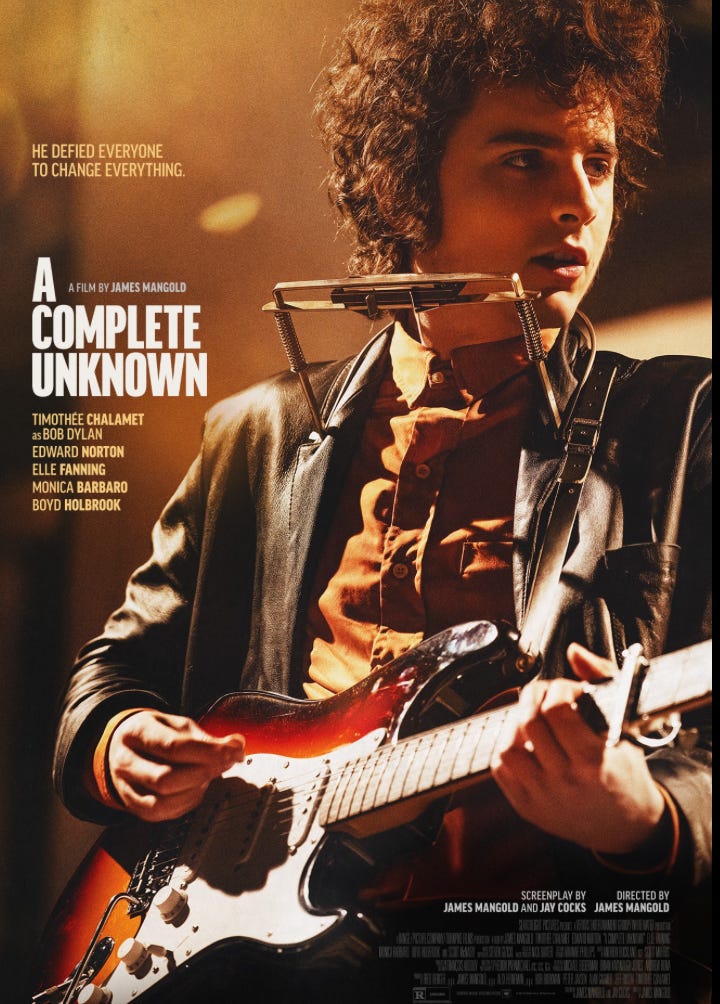Film: A Complete Unknown
A film review of the new Dylan biopic
A Complete Unknown
Director: James Mangold
Veritas Entertainment / Searchlight Pictures
I knew that I had to go to A Complete Unknown — the biopic of Bob Dylan’s early years, so loosely based on a book about Dylan “going electric” that the author of that book is like Homer Simpson, Smiling Politely — hopefully he got a nice holiday out of it at the least, …
Keep reading with a 7-day free trial
Subscribe to Sounds Good! to keep reading this post and get 7 days of free access to the full post archives.


